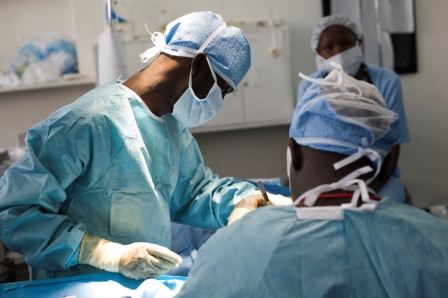Understanding Medical Malpractice
Medical malpractice occurs when a healthcare professional deviates from the standards of their profession, resulting in harm to a patient. This legal concept is built on the foundation of a patient-practitioner relationship, where patients trust their healthcare providers to deliver competent and safe care. When that trust is breached, patients may seek legal recourse.
In a typical medical malpractice case, the burden of proof lies with the plaintiff (the patient or their family), who must demonstrate that the healthcare provider failed to meet the standard of care, that this failure caused injury, and that the injury led to specific damages.
Components of Medical Malpractice Cases
For a successful malpractice claim, several key components must be established:
Duty of Care: The healthcare provider must have had a professional duty to the patient. Negligence: The provider must have breached that duty, typically by failing to provide the appropriate standard of care. Causation: There must be a direct link between the breach of duty and the injury sustained by the patient. Damages: The patient must have suffered measurable damages as a result.
The Importance of Expert Witnesses
Expert witnesses play a pivotal role in medical malpractice trials. Their primary function is to provide specialized knowledge and opinions that help the jury or judge understand complex medical issues that are beyond the comprehension of a layperson.
In many malpractice cases, the delineation of what constitutes acceptable medical care can be highly intricate. Therefore, the testimony of expert witnesses can be instrumental in establishing whether a healthcare provider acted within the bounds of accepted medical practices.
Types of Expert Witnesses
In the context of medical malpractice, several types of expert witnesses may be called to testify:
- Medical Experts: These are often physicians or specialists in the area relevant to the case. For example, if a surgeon is accused of malpractice during a procedure, a surgical expert may provide insight into the standard practices of that specialty. Nursing Experts: In cases where nursing care is scrutinized, a nursing expert may be called to testify about the accepted standards of nursing behavior and care. Medical Economists: They may provide testimony regarding the economic impact of the malpractice on the patient’s life and potential future earnings. Life Care Planners: They are often involved in determining the long-term care and financial needs of a patient who has sustained significant injuries.
How Expert Witnesses Influence Trials
The testimony of expert witnesses can significantly influence the direction and outcome of a medical malpractice trial. Here are several ways they contribute:
Clarifying Medical Standards
Expert witnesses clarify what constitutes acceptable conduct in the medical field. They can provide specific examples of standard practices or highlight deviations from those practices. This clarification is crucial, as jurors often lack medical background knowledge.
For example, in a case involving a misdiagnosed condition, the expert might explain what tests and evaluations should have been undertaken to arrive at an accurate diagnosis. This insight can help jurors grasp whether the defendant acted appropriately.
Providing Credibility
The credibility of the expert witness also plays a pivotal role. An expert who is well-respected in their field and has extensive experience is far more likely to be persuasive than a less accomplished individual. A solid professional background can enhance the jury’s perception of the expert’s opinions.
Comparing Care Practices
Expert witnesses can provide comparisons of the allegedly negligent care practices against the accepted benchmarks. In doing so, they can highlight discrepancies that may have adversely affected the patient's outcome.
The Process of Engaging Expert Witnesses
The engagement of expert witnesses is a critical step in preparing for a medical malpractice trial. The process typically involves several stages:
Selection of Experts
The first step is the meticulous selection of experts who have the requisite knowledge and experience in the relevant field of medicine. Attorneys will consider not only an expert’s qualifications but also their ability to communicate effectively.
Interviews and Collaboration
Once potential experts are identified, attorneys often conduct interviews to assess their suitability for the case. During this stage, an attorney will discuss the specifics of the case and solicit the Experienced medical malpractice lawyer expert’s opinion on the issues at hand. Collaboration may also involve reviewing medical records, depositions, and other relevant documents.
Preparing for Testimony
Preparation for legal help for medical malpractice testimony is essential. Legal teams work closely with expert witnesses to ensure they understand key facts and arguments. This includes mock trials or role-plays where the expert can practice delivering testimony and answering questions effectively.
Challenges and Considerations
While expert witnesses play an essential role in medical malpractice cases, challenges and considerations must be taken into account.
Cost of Expert Testimony
Experts can be expensive to engage, and the costs associated with securing their services may be considerable. This is a crucial factor for many plaintiffs, particularly in cases where financial resources are limited.
Bias and Credibility
The credibility of expert witnesses can be challenged by the opposing side. Defense attorneys may work to discredit an expert’s qualifications, argue that their testimony is biased, or highlight any instances of inconsistencies in their statements.
Regulatory Compliance
Experts must also adhere to the rules and regulations governing their fields and testimony in court. This means being aware of any legal limitations regarding the scope of their testimony and ensuring that their opinions are based on reliable methods.
Conclusion
Expert witnesses serve a crucial function in medical malpractice trials, providing essential insights that can greatly influence the case's outcome. By clarifying medical standards, comparing practices, and lending their credibility, they help bridge the gap between complex medical information and legal determinations.
As the legal landscape continues to evolve, the role of the expert witness remains vital in ensuring that justice is served for patients who have been harmed by negligence in the medical field. Given their extensive training, knowledge, and professional background, expert witnesses are indispensable in helping juries navigate the complexities that surround medical malpractice cases.
